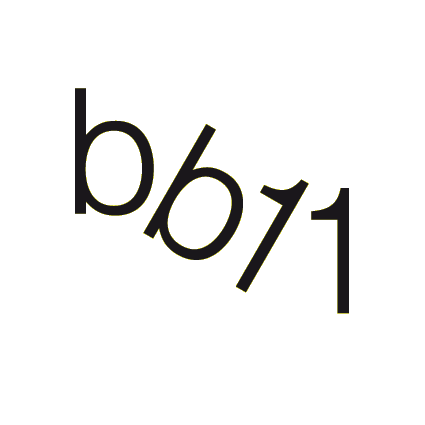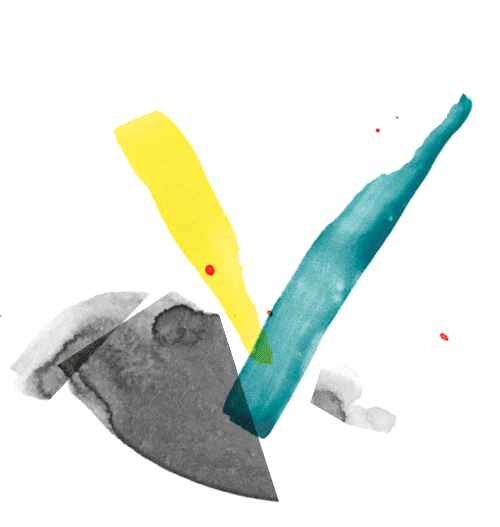

Sign up for our newsletters. You can change the settings or unsubscribe at any time.
Thank you for your subscription. We have sent you an e-mail with a confirmation link.


exp. 1
exp. 2
exp. 3

Óscar Fernando Morales Martínez
Venue: KW Institute for Contemporary Art
Óscar Fernando Morales Martínez
Born 1951 in Copiapó, CL – lives and works in Santiago, CL
Óscar Fernando Morales Martínez is a Chilean artist and poet. Trained as a mechanic and electrician, he began making art early in life, but his work became more concentrated after he was hospitalized in a psychiatric institution. He was diagnosed with paranoid schizophrenia as a young man, shortly after his compulsory military service. In the hospital he continued to draw and paint prolifically, using markers, pencil, and tempera on paper. In his drawings, Morales Martínez employs a repetitive, self-invented formula: the code of a noble supercomputer composed of lines, words, and numbers. Most of his works feature a ruler-drawn frame, inside of which are electric circuits, aliens, video cameras, birds, Internet orbits, teddy bears, angels, and light bulbs. Morales Martínez makes images that refer to the divine, the animal world, “electronic dreams” (possibly linked to electroconvulsive therapy), memories of his mother, and his childhood in Copiapó, a desert mining city in the north of Chile. Technology, autobiography, and mythological creations are mixed together in a contained cosmos—a spiritual datasheet where everything can be explained within the page. These elaborate constructions seem safer than the outside world, and provide the necessary means to inhabit it.
In 2012 Óscar Fernando Morales Martínez began to participate in Radio Estación Locura, a radio station founded by psychologist Ernesto Bouey and run by patients at the Psychiatric Institute Dr. José Horwitz Barak in Santiago, where Morales spends most of his days as an outpatient. The radio follows the individual impulses of the contributors while creating a sense of community around the urgency of making. While Morales Martínez had already transformed the hallways of the Psychotherapy Unit into an ever-shifting exhibition of his many drawings and paintings, the radio became a place for him to open up his practice.
Amelia Bande
St Sara Kali George
Delaine Le Bas
Soundscape
New Look
Flávio de Carvalho
Performance
Género y colonialidad en busca de claves de lectura y de un vocabulario estratégico descolonial
Rita Segato
Essay
Being in Crisis together – Einander in Krisen begegnen
Feminist Health Care Research Group (Inga Zimprich/Julia Bonn)
Online workshop
Grupo Experimental de Cine en acción
Gabriel Peluffo
Drawing
Freiheit für Chile!
Anonymous
Photo album
By using this website you agree to the use of cookies in accordance with our data privacy policy.

Óscar Fernando Morales Martínez
Venue: KW Institute for Contemporary Art
Óscar Fernando Morales Martínez
Born 1951 in Copiapó, CL – lives and works in Santiago, CL
Óscar Fernando Morales Martínez is a Chilean artist and poet. Trained as a mechanic and electrician, he began making art early in life, but his work became more concentrated after he was hospitalized in a psychiatric institution. He was diagnosed with paranoid schizophrenia as a young man, shortly after his compulsory military service. In the hospital he continued to draw and paint prolifically, using markers, pencil, and tempera on paper. In his drawings, Morales Martínez employs a repetitive, self-invented formula: the code of a noble supercomputer composed of lines, words, and numbers. Most of his works feature a ruler-drawn frame, inside of which are electric circuits, aliens, video cameras, birds, Internet orbits, teddy bears, angels, and light bulbs. Morales Martínez makes images that refer to the divine, the animal world, “electronic dreams” (possibly linked to electroconvulsive therapy), memories of his mother, and his childhood in Copiapó, a desert mining city in the north of Chile. Technology, autobiography, and mythological creations are mixed together in a contained cosmos—a spiritual datasheet where everything can be explained within the page. These elaborate constructions seem safer than the outside world, and provide the necessary means to inhabit it.
In 2012 Óscar Fernando Morales Martínez began to participate in Radio Estación Locura, a radio station founded by psychologist Ernesto Bouey and run by patients at the Psychiatric Institute Dr. José Horwitz Barak in Santiago, where Morales spends most of his days as an outpatient. The radio follows the individual impulses of the contributors while creating a sense of community around the urgency of making. While Morales Martínez had already transformed the hallways of the Psychotherapy Unit into an ever-shifting exhibition of his many drawings and paintings, the radio became a place for him to open up his practice.
Amelia Bande
Grupo Experimental de Cine en acción
Gabriel Peluffo
Drawing
Género y colonialidad en busca de claves de lectura y de un vocabulario estratégico descolonial
Rita Segato
Essay
New Look
Flávio de Carvalho
Performance
Expresiones de la locura: el arte de los enfermos mentales
Hans Prinzhorn
Monograph
Fragments of the Artist’s Diary, Berlin 11.2019–1.2020
Virginia de Medeiros
Diary
Maternidades subversivas
María Llopis
Monograph
By using this website you agree to the use of cookies in accordance with our data privacy policy.

Óscar Fernando Morales Martínez
Venue: KW Institute for Contemporary Art
Óscar Fernando Morales Martínez
Born 1951 in Copiapó, CL – lives and works in Santiago, CL
Óscar Fernando Morales Martínez is a Chilean artist and poet. Trained as a mechanic and electrician, he began making art early in life, but his work became more concentrated after he was hospitalized in a psychiatric institution. He was diagnosed with paranoid schizophrenia as a young man, shortly after his compulsory military service. In the hospital he continued to draw and paint prolifically, using markers, pencil, and tempera on paper. In his drawings, Morales Martínez employs a repetitive, self-invented formula: the code of a noble supercomputer composed of lines, words, and numbers. Most of his works feature a ruler-drawn frame, inside of which are electric circuits, aliens, video cameras, birds, Internet orbits, teddy bears, angels, and light bulbs. Morales Martínez makes images that refer to the divine, the animal world, “electronic dreams” (possibly linked to electroconvulsive therapy), memories of his mother, and his childhood in Copiapó, a desert mining city in the north of Chile. Technology, autobiography, and mythological creations are mixed together in a contained cosmos—a spiritual datasheet where everything can be explained within the page. These elaborate constructions seem safer than the outside world, and provide the necessary means to inhabit it.
In 2012 Óscar Fernando Morales Martínez began to participate in Radio Estación Locura, a radio station founded by psychologist Ernesto Bouey and run by patients at the Psychiatric Institute Dr. José Horwitz Barak in Santiago, where Morales spends most of his days as an outpatient. The radio follows the individual impulses of the contributors while creating a sense of community around the urgency of making. While Morales Martínez had already transformed the hallways of the Psychotherapy Unit into an ever-shifting exhibition of his many drawings and paintings, the radio became a place for him to open up his practice.
Amelia Bande
Grupo Experimental de Cine en acción
Gabriel Peluffo
Drawing
O Bailado do Deus Morto
Flávio de Carvalho
Play
Struggle as Culture: The Museum of Solidarity, 1971–73
María Berríos
Essay
Touching Feeling. Affect, Pedagogy, Performativity
Eve Kosofsky Sedgwick
Monograph
II: La Solidaridad va Más Allá de un Concepto. Entre las Curadoras de la XI Berlin Biennale
Lisette Lagnado, Agustín Pérez Rubio
Conversation
Maternidades subversivas
María Llopis
Monograph
By using this website you agree to the use of cookies in accordance with our data privacy policy.

Óscar Fernando Morales Martínez
Venue: KW Institute for Contemporary Art
Óscar Fernando Morales Martínez
Born 1951 in Copiapó, CL – lives and works in Santiago, CL
Óscar Fernando Morales Martínez is a Chilean artist and poet. Trained as a mechanic and electrician, he began making art early in life, but his work became more concentrated after he was hospitalized in a psychiatric institution. He was diagnosed with paranoid schizophrenia as a young man, shortly after his compulsory military service. In the hospital he continued to draw and paint prolifically, using markers, pencil, and tempera on paper. In his drawings, Morales Martínez employs a repetitive, self-invented formula: the code of a noble supercomputer composed of lines, words, and numbers. Most of his works feature a ruler-drawn frame, inside of which are electric circuits, aliens, video cameras, birds, Internet orbits, teddy bears, angels, and light bulbs. Morales Martínez makes images that refer to the divine, the animal world, “electronic dreams” (possibly linked to electroconvulsive therapy), memories of his mother, and his childhood in Copiapó, a desert mining city in the north of Chile. Technology, autobiography, and mythological creations are mixed together in a contained cosmos—a spiritual datasheet where everything can be explained within the page. These elaborate constructions seem safer than the outside world, and provide the necessary means to inhabit it.
In 2012 Óscar Fernando Morales Martínez began to participate in Radio Estación Locura, a radio station founded by psychologist Ernesto Bouey and run by patients at the Psychiatric Institute Dr. José Horwitz Barak in Santiago, where Morales spends most of his days as an outpatient. The radio follows the individual impulses of the contributors while creating a sense of community around the urgency of making. While Morales Martínez had already transformed the hallways of the Psychotherapy Unit into an ever-shifting exhibition of his many drawings and paintings, the radio became a place for him to open up his practice.
Amelia Bande
I: Junto a las curadoras de la XI Berlin Biennale for Contemporary Art
Renata Cervetto, Lisette Lagnado
Conversation
Género y colonialidad en busca de claves de lectura y de un vocabulario estratégico descolonial
Rita Segato
Essay
Undocumented Rumours and Disappearing Acts from Chile
María Berríos
Essay
St Sara Kali George
Delaine Le Bas
Soundscape
Flávio de Carvalho: Fazenda Capuava
Archive of Lisette Lagnado
Photographs
„Klaus Eckschen: Hörspiel“
Die Remise
Hörspiel
By using this website you agree to the use of cookies in accordance with our data privacy policy.
By using this website you agree to the use of cookies in accordance with our data privacy policy.




